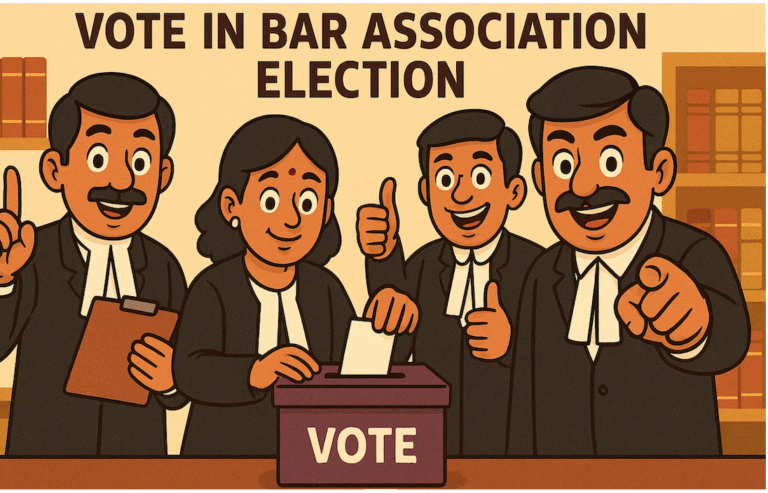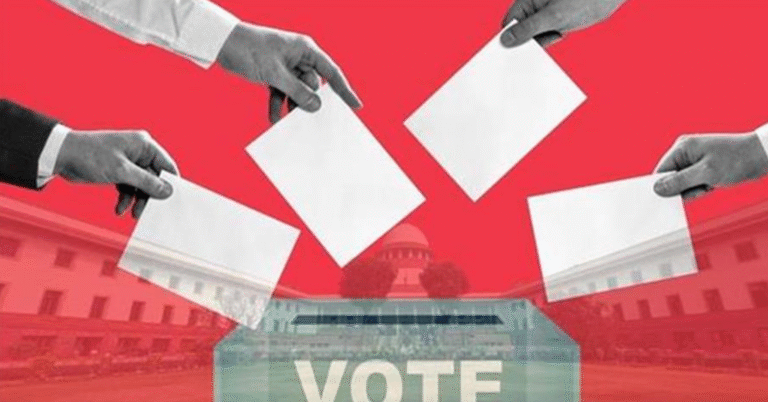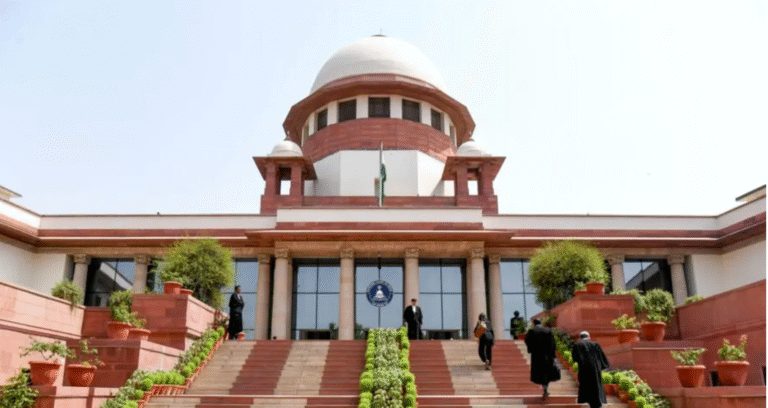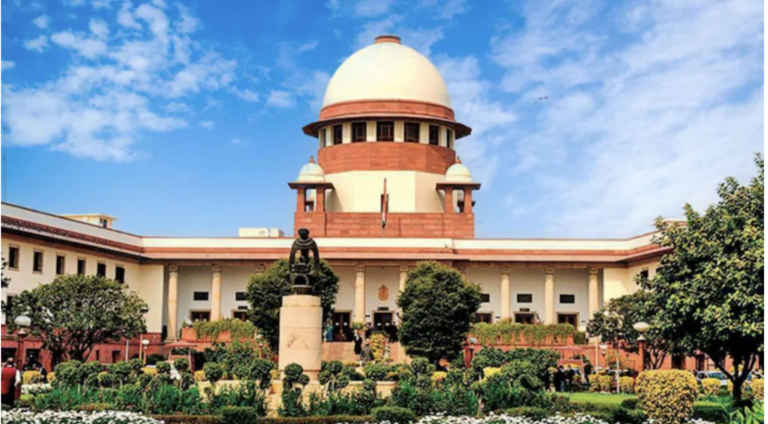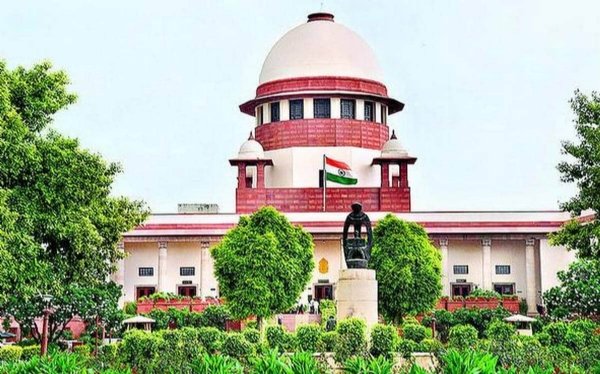Adv. Nilesh Ojha moves Five-Judge Bench seeking impleadment of Justice Revathi Mohite Dere as Party-Respondent; demands reply affidavit and interim compensation of ₹10 Crores

Advocate Nilesh Ojha, National President of the Indian Bar Association, has filed an application before the Five-Judge Bench of the Bombay High Court seeking directions to implead Justice Revathi Mohite Dere as a necessary party-respondent in the pending contempt proceedings and to issue notice to her to file her reply affidavit.
The application points out that cognizance in the present proceedings has been taken solely on the basis of the private complaint dated 04.04.2025 made by Justice Mohite Dere. Accordingly, as per the binding law declared in Sundeep Kumar Bafna v. State of Maharashtra (2014) 16 SCC 623 and other Supreme Court precedents, a discharge application—having the effect of terminating the prosecution—cannot be decided without impleading and hearing the de facto complainant.
Ojha has further placed on record serious allegations supported by documentary proof against Justice Mohite Dere, including:
· Fraud upon the Court and forgery of court records,
· Corruption in granting reliefs to accused in multi-crore fraud cases,
· Filing of a false and frivolous complaint with the ulterior motive of falsely implicating him in a criminal contempt case,
· Bias and mala fides to shield herself from anticipated prosecution for her own alleged misconduct.
Relying on precedents such as S.P. Gupta v. Union of India (AIR 1982 SC 149), Re: Justice C.S. Karnan (2017) 7 SCC 1, C.S. Rowjee v. APSRTC (AIR 1964 SC 962), and Express Newspapers v. Union of India ((1986) 1 SCC 133), Ojha emphasized that allegations made against a Judge must be specifically and personally rebutted by the Judge herself. Any affidavit by third parties, including State Law Officers, would be inadmissible hearsay evidence. In the absence of a clear and categorical denial on affidavit by Justice Mohite Dere, the allegations stand deemed admitted and legally established.
In addition, Ojha has sought ₹10 Crores as interim compensation from Justice Mohite Dere for the false implication and malicious prosecution, which he contends have caused irreparable harm to his reputation, dignity, and professional standing.
The application thus prays that the Hon’ble Court issue notice to Justice Revathi Mohite Dere, directing her to submit her reply affidavit to the allegations on record, as a matter of judicial necessity and constitutional propriety.
Earlier, the Hon’ble Supreme Court Constitution Bench in S.P. Gupta v. Union of India, AIR 1982 SC 149, and again in Re: Justice C.S. Karnan, (2017) 7 SCC 1, directed the filing of a reply affidavit by the Judges and even from the Hon’ble Chief Justice of India, and categorically held that once a Judge enters the arena as a complainant or litigant, such affidavit must be treated like that of any other party. In fact, the Court went further to critically examine and comment adversely upon the contents of the said affidavit, thereby establishing that no special immunity attaches to Judges in such situations.
In several other cases, Judges have been summoned or called upon to explain their conduct where contempt proceedings related directly to them. For instance:
In In Re: Vinay Chandra Mishra, (1995) 2 SCC 584, P.K. Ghosh v. J.G. Rajput, (1995) 6 SCC 744, the Supreme Court called for an explanation from the concerned Judge regarding allegations of bias and false implication.
These precedents demonstrate the settled principle that when contempt proceedings originate from or relate to the acts of a Judge, that Judge can be treated as a witness or complainant, and may be required to file an affidavit or even appear for explanation, exactly like any other litigant.
If the said Judge files false affidavit then it is a serious criminal offence. The Hon’ble Supreme Court has repeatedly held that an affidavit is evidence within the meaning of law, and any false statement made therein attracts prosecution. Accordingly, the concerned Judge who files a false affidavit becomes liable to be prosecuted under Sections 191 (giving false evidence), 192 (fabricating false evidence), 193 (punishment for false evidence), 199 (false statement made in declaration), and 200 (using as true a declaration known to be false) of the Indian Penal Code, 1860 (corresponding provisions under the Bharatiya Nyaya Sanhita, 2023). These provisions prescribe punishment extending up to seven years’ rigorous imprisonment, in addition to fine.
1. Evidence Highlighted in the Affidavit :- The affidavit filed by Ojha highlights three sets of allegations, described as instances of judicial dishonesty, forgery of court records, and conflict of interest:
(i) Forgery in the Chanda Kochhar Bail Matter:
It is alleged that while granting bail to Smt. Chanda Kochhar in Criminal Writ Petition (St.) No. 22494 of 2022, Justice Mohite-Dere deliberately omitted to record Section 409 IPC, an offence punishable with life imprisonment, and instead falsely noted in her order dated 09.01.2023 that the maximum punishment was only seven years. This, according to Ojha, was done to bring the case within the protective ratio of Arnesh Kumar v. State of Bihar, (2014) 8 SCC 273. Furthermore, the Judge is accused of ignoring the order of the Special CBI Judge and thereby acting in violation of binding guidelines laid down by the Supreme Court in Ram Pratap Yadav v. Mitra Sen Yadav, (2003) 1 SCC 15.
(ii) Forgery in the Dilip Mohite Bail Matter:
Ojha’s affidavit further alleges that in granting bail to NCP MLA Dilip Mohite in ABA No. 1621 of 2019, by orders dated 26.07.2019 and 21.08.2019, the learned Judge deliberately concealed material facts. Specifically, she is alleged to have suppressed that Section 307 IPC (attempt to murder) had been invoked against the accused based on evidence showing a conspiracy to kill a police officer and to attack a police station. An earlier order dated 19.07.2019, which explicitly recorded these findings, was allegedly kept out of consideration to facilitate bail. This, according to Ojha, constitutes judicial dishonesty and fraud on power, as recognised in Muzaffar Husain v. State of U.P., 2022 SCC OnLine SC 567, and Kamisetty Pedda Venkata Subbamma v. Chinna Kummagandla Venkataiah, 2004 SCC OnLine AP 1009.
(iii) The affidavit also underscores a serious conflict of interest arising from the fact that Smt. Vandana Chavan, former Member of Parliament and prominent leader of the NCP (Sharad Pawar faction), is the real sister of Justice Revathi Mohite-Dere. It is alleged that the learned Judge has, on several occasions, extended unwarranted reliefs to individuals associated with that political faction, while simultaneously adopting a discriminatory and hostile approach towards litigants perceived to be opposed to the party’s ideology—including members and policies of the BJP-led government. According to Ojha, this family connection gravely compromises the standard of judicial impartiality expected of a High Court Judge and has the effect of vitiating orders passed in politically sensitive cases, thereby undermining public confidence in the fairness and independence of the judiciary.
2. Complaint of April 4, 2025 Proved False :- The affidavit filed by Advocate Nilesh Ojha asserts that the complaint dated April 4, 2025, made by Justice Revathi Mohite-Dere, stands ex facie false and baseless when tested against police reports, court records, and other documentary material. According to Ojha, the complaint was lodged only as a shield to deflect attention from serious allegations of corruption and misconduct.
2.1. The affidavit further states that the falsity of the complaint has been conclusively demonstrated through undisputed records of the police, Sessions Court, CBI Court, and documents already placed before the Supreme Court. Ojha has warned that when a senior Judge herself relies on a false and frivolous complaint, it does not merely tarnish her own credibility but also inflicts grave damage on public faith in the judiciary as an institution.
2.2. Accordingly, the application prays not only for the issuance of an arrest warrant and criminal prosecution, but also for initiation of contempt of court proceedings against Justice Mohite-Dere. Experts believe that if the Constitution Bench formally acknowledges the falsity of the complaint, it would constitute a watershed moment in Indian judicial history, inevitably leading to her prosecution and removal from office.

